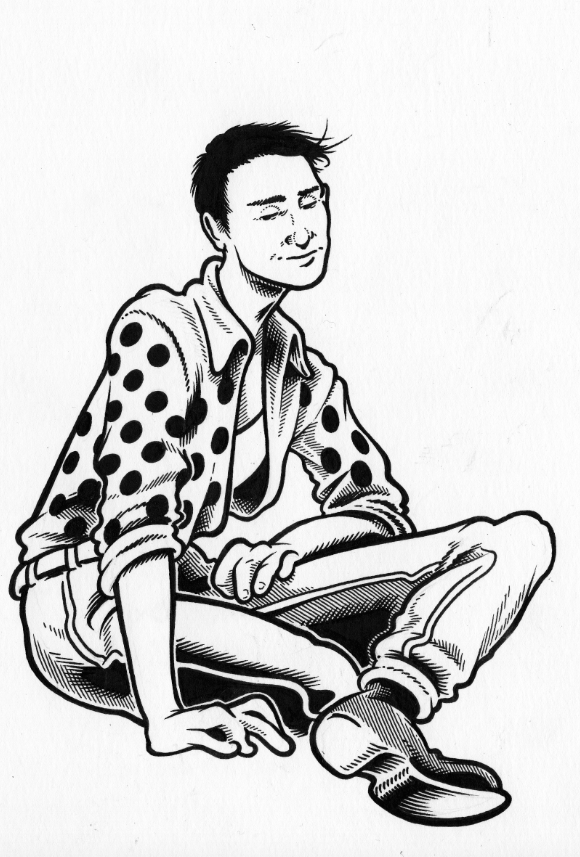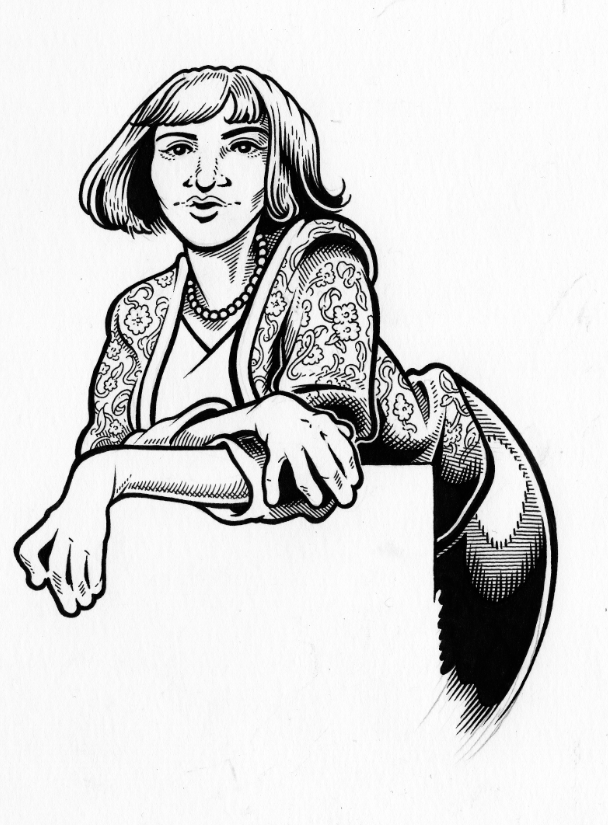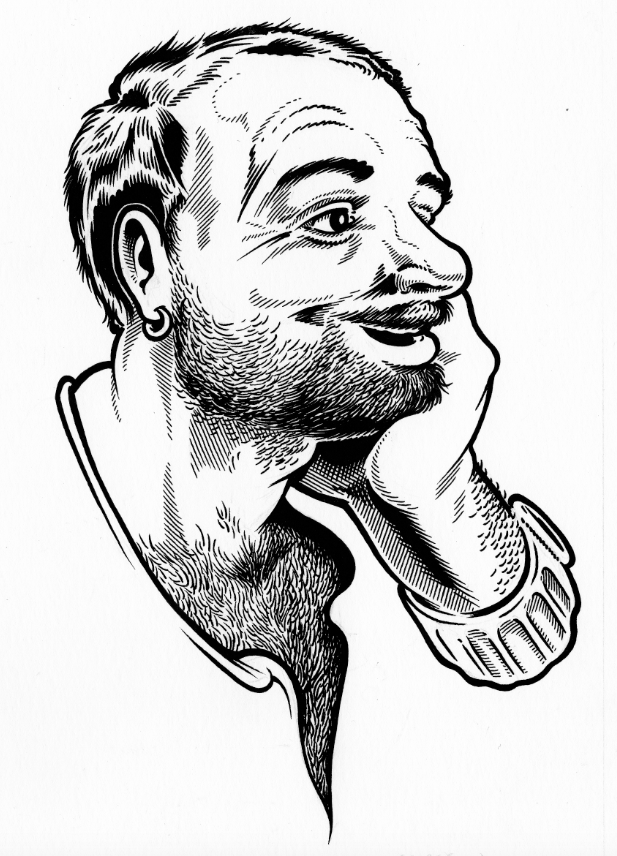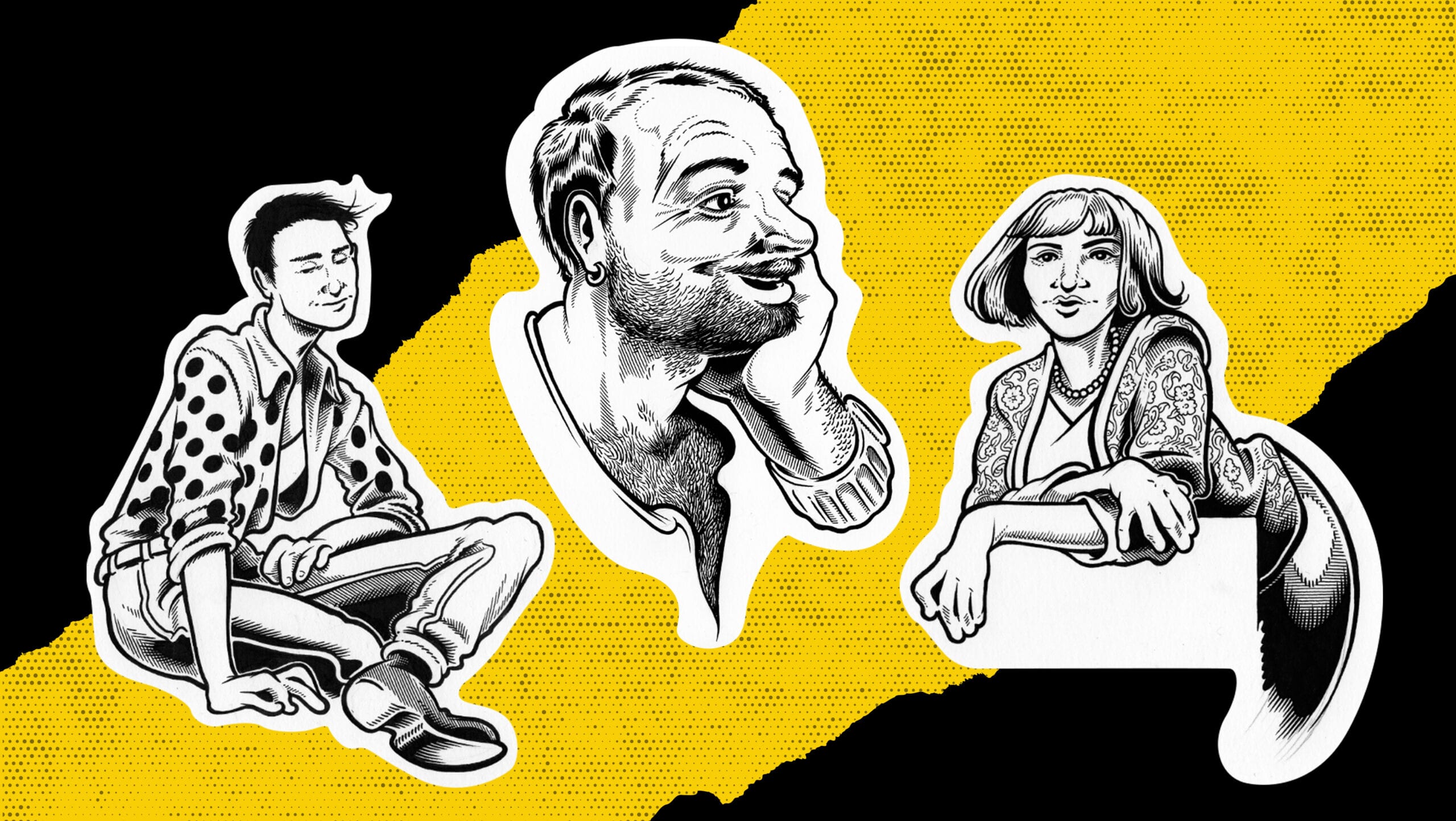From 2016 to 2019, Alexander McClelland, a researcher and Banting Postdoctoral Fellow at the University of Ottawa, spoke to 16 people across the country about their experience with Canada’s legal system and HIV non-disclosure laws. In Canada, those who do not disclose that they are HIV-positive to a sexual partner can face sexual assault charges, and if prosecuted, are mandated to appear on sexual offender registries.
Since 1989, more than 200 Canadians have been criminally prosecuted for HIV non-disclosure; in most of those cases, HIV was not transmitted, and many involve situations in which transmission was not possible—whether because their viral load was undetectable or because they used condoms. Despite reforms over the years, many HIV-positive folks remain vulnerable to criminalization.
The culmination of McClelland’s research is a new booklet, The Criminalization of HIV Non-Disclosure: Experiences of People Living with HIV in Canada. In it, McClelland features interviews with nine Canadians who were criminalized for their HIV status. They are all recent cases, with the earliest stemming back to 2000 and the latest in 2015. Below are three of those stories.

Matteo: “They didn’t know what undetectable meant”

When I met him, Matteo was still under curfew as part of the conditions of his release. His parents were his sureties—he was mandated to live with them in the suburbs. A gay white man in his early 20s, Matteo was still in college, and only allowed out of his parents’ house to attend school for the day. He only recently found out his HIV-positive status. In fact, we met on the one-year anniversary of his diagnosis. He told me about how he had used hook-up applications like Grindr and Scruff. He met a guy that way, and they had sex.
Matteo did not tell the guy his status. He had been told by his doctor that since he was virally undetectable it was impossible for him to transmit HIV. Matteo concluded that he only had to disclose his status if there was a risk of transmission: “I thought if I was taking medication I didn’t have to disclose. Apparently, that is not the case.” A few weeks later, he was at work and the police came to arrest him. Matteo was arrested in front of his staff, coworkers and customers. “I felt really shitty, like I, like I had just robbed a liquor store,” he says. “They [the police] said, ‘You know why we are here. You are being charged and arrested.’
“They read me my rights and said, ‘This is what you are being charged with—four counts of aggravated sexual assault.’” Matteo immediately spoke with duty counsel—a publicly funded lawyer for people who cannot hire their own—who told him not to speak to the police. They took him to the police station in their cruiser and into an interrogation room. After aggressively pressuring him, the “extremely intimidating” police got him to speak about his experience. “I told them a lot about myself—they didn’t know what undetectable meant, they didn’t have any knowledge on it.”
He ended up educating the detectives on the risk factors for transmission. Fundamentally, the police tasked with arresting Matteo did not know the current science behind the actual risks of HIV transmission. The police then released his picture, biometric details including his height, weight, eye and hair colour, any visible identifying marks, the charges filed against him, and his HIV-positive status. They also released a picture of Matteo as part of a public safety warning, asking his past sexual partners to come forward. The warning was widely covered in the media. As a result, it was also shared online, including on Facebook, targeting Matteo’s profile. One such negative post read, “If we still had the lash in Canada for punishment, this would be a case for its proper application.”
While talking at his place, Matteo told me more about what it was like to live under curfew at his parents’ house and the other conditions of his release. He felt constantly surveilled, isolated and depressed. He pulled out a piece of paper and read to me the more than 20 conditions of his release. Among the many conditions, he was barred from socializing in the gay community or going out to participate in social events. The condition that most bothered him was that he was mandated to contact authorities 24 hours before any potential sexual conduct, providing them with the name and contact information of the person. The police would then directly verify that the person knew Matteo’s HIV-positive status and that they consented to sex with him. “Like, who is going to want to do that? How am I going to meet anyone?” He felt extremely isolated and lonely.
Cynthia: “If I had not called the police, I would not have this charge hanging over my head”

Credit: Courtesy Eric Kostiuk Williams
I met Cynthia in her neighbourhood on the outskirts of a large Canadian urban centre. She told me about her move to Canada a few years earlier from a South American country. She felt that living as a transsexual woman in her home country was impossible. She feared that had she remained, she would have faced life-threatening violence.
Since moving to Canada, Cynthia had been working as a sex worker. She told me she generally had clients she liked, and she worked out of her home. She was warm and engaged when talking to me. In her late 30s, Cynthia was well-dressed and had a gentle demeanour. As we sat together drinking tea, she began telling me about how she was threatened with a charge of aggravated sexual assault. She was on anti-HIV medications, was undetectable and regularly used condoms with her clients. She knew that she was protecting them and also herself.
One of her regulars came over one night more intoxicated than was typical for him. He pulled a knife on Cynthia and raped her, holding the knife to her neck. He did not use a condom. She was terrified and called the police afterwards. During the police investigation, Cynthia told police about her HIV-positive status. Later, when speaking with the man who raped her, the police told him that he could press charges against Cynthia. She had previously not disclosed her status to the man, thinking that the use of a condom and being undetectable was more than sufficient. A few weeks later, she received a letter from a detective, stating that she was under investigation and they were considering pressing criminal charges of aggravated sexual assault. She was scared and didn’t know what to do. The man knew where she lived and had been violent toward her, and now she was potentially facing criminal charges. She told me that because she was a sex worker, her rape and assault were not being further pursued by the police. But now she was under threat of a charge of aggravated sexual assault for not disclosing her HIV status to her rapist.
After receiving the letter about the investigation from the authorities, Cynthia felt constantly surveilled, scared and worried. Moreover, now that he knew she was HIV-positive, the client who assaulted her began stalking and harassing her. She was terrified in her own neighbourhood, isolating herself and rarely venturing out. She deactivated her social media accounts because he also began posting messages, harassing her and her friends online. She was extremely fearful in her own neighbourhood but also scared to call the police again. “If I had not called them, I would not have this charge hanging over my head,” she says. She felt as though she was under constant watch, but with no means to protect herself. She knew the police were not going to help her and was worried she would face additional violence from her former client.
George: “This rape charge and HIV was worse than being a murderer in their eyes”

Credit: Courtesy Eric Kostiuk Williams
I met George in his apartment. He is a warm and gregarious white gay man in his late 50s, with a self-described long history of problematic prescription drug use, gambling and mental health issues. When George began a specific relationship around 10 years earlier, he initially did not tell his boyfriend about his HIV-positive status. At the time, he told me, he was himself uncertain about how HIV was transmitted. He told me that he was often depressed and in denial about aspects of his life. One day, a few months after his own diagnosis, George told me that his boyfriend came home with an HIV-positive test result from the clinic after a routine sexually transmitted infection screen. George then finally told his boyfriend his status in a letter: “There is a possibility that you may have gotten it from me, and I’m very deeply sorry for not disclosing [it to you].” His boyfriend went into a rage and went to police.
A few days later, he received a text message from his boyfriend that he was at the police station giving them his story. George immediately went to the station. “The next thing I knew, they were taking me into custody, and they said, ‘You have the right to call a lawyer,’ and they told me that ‘you are being arrested for sexual assault.’” George told me that a constable initially told him, “You’ve never had a criminal charge before. You will probably just have to stay overnight and tomorrow we’ll get your bail sorted.” But, a few hours later, the same constable came to see him and told him his charges had been elevated to attempted murder: “‘You aren’t going anywhere,’ she says, and she was right.” Due to the severity of the charge, George was denied bail even though he had no previous criminal record.
Due to the fear, shame and anxiety he experienced, George decided to plead guilty. He had never been incarcerated. The Crown Prosecutor asked for 10 years. George’s lawyer told George to plea, that he had no case because he had admitted his crimes. If he pleaded out, he would be sentenced to a lot less time incarcerated. He listened to his lawyer.
While incarcerated, George was placed in the general population with men facing all types of charges. He started facing verbal and physical harassment. Prisoners began calling him a rapist and asked why he took medication. After days of harassment, he was brutally assaulted by other prisoners. Those assaulting him said they knew he was trying to spread HIV. George said the guards watched and did nothing. (Under an institutional directive, prisoners’ charges and health status should remain confidential, and the only people with access to the information are guards.)
While in protective custody, George remained unsafe and was beaten again and again: “I went into the protective custody wing, and there are all kinds of sex offenders there and murderers and everything else like that. And when I got there, they found out my charge. So, they beat the shit out of me as well. I never fought a day in my life. I have never lifted a hand to anybody… I was on an isolated range for violent murderers and would still get harassed. You know, this rape charge and HIV was worse than being a murderer in their eyes.”
He told me that other sex offenders and murderers were left alone. But he was continually attacked for having HIV combined with a “dirty charge”—that is, aggravated sexual assault. One day, George was being harassed by another prisoner when a guard intervened. George told me he felt the guard had it out for him, and he was scared of the guard who had said demeaning things to him in the past. After the altercation with the other prisoner, George started to have a panic attack. While hyperventilating, that same guard forced George to strip naked and made him lay down on the cold concrete floor, holding him down on the floor with his boot. The guard pushed his boot into George’s chest hard and said, “I don’t touch anyone with AIDS,” as a nurse arrived to sedate George, sticking a syringe in his arm.
Ultimately, he served the rest of his sentence in administrative segregation, where he only had a concrete floor with no bed until night time. He was given just one sheet of paper and a pencil to occupy his time while locked down alone in a cell. He served approximately one year in those conditions.

Names have been changed to protect identities. Illustrations are not intended to represent the subject’s likeness but instead to bring each person to life in a context when being criminalized meant they lost all access to autonomy, privacy, humanity and justice.
To read more profiles and the findings of McClelland’s research, see The Criminalization of HIV Non-Disclosure: Experiences of People Living with HIV in Canada.


 Why you can trust Xtra
Why you can trust Xtra


